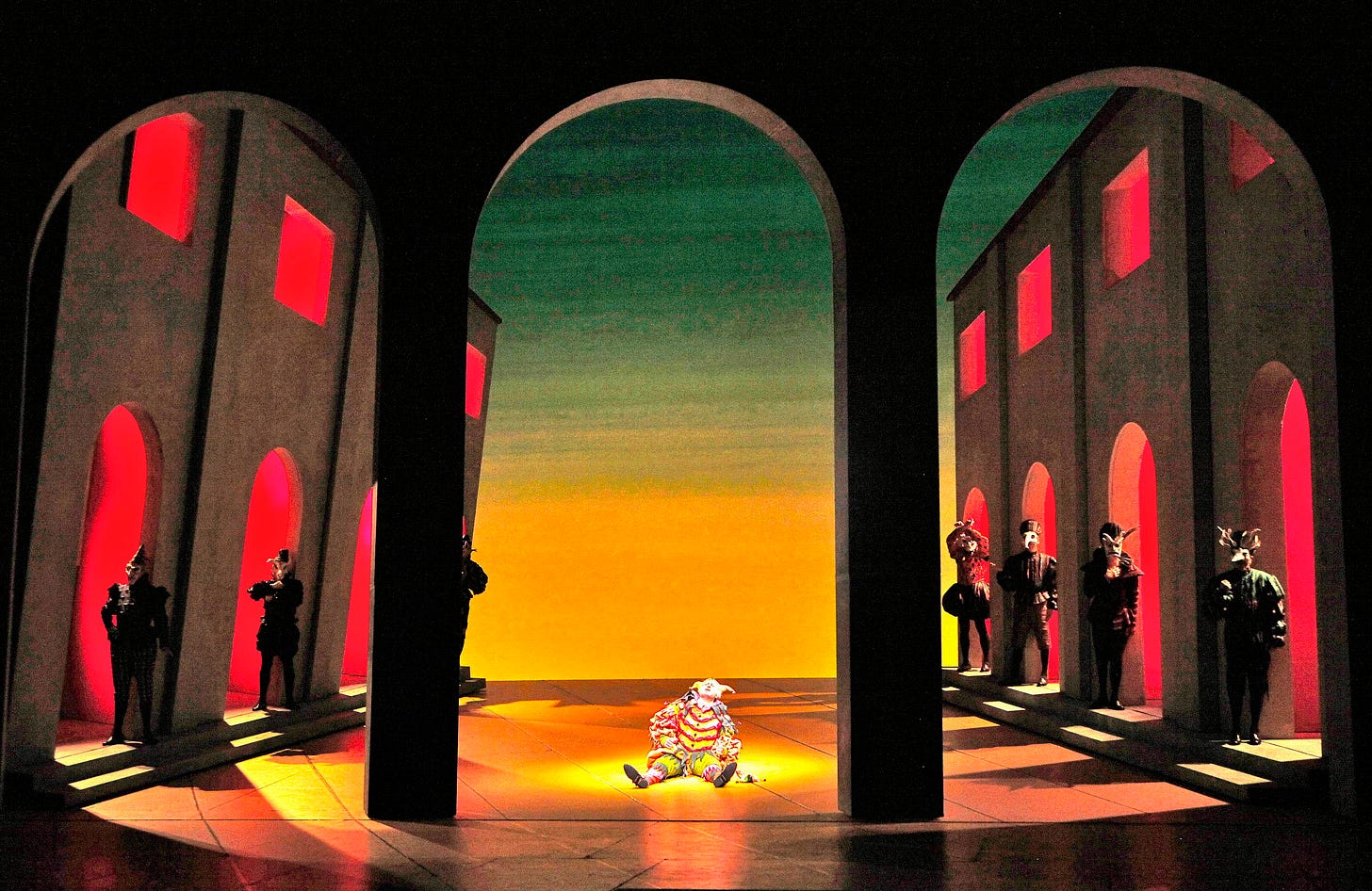City on a Hill
Harvey Milk stood at his office window. There was so much to do, but it was work of joy and meaning, not the the work of his former life in New York as a stockbroker. They were changing the world. San Francisco's sky was a foggy mess, but sunlight burned through on the opera house across Van Ness Avenue, its columns spilling bright red blood advertising “Rigoletto." He had been there last night. It was wonderful! Verdi always made sense to him. Tragic and big. Simple truths born in heavy emotions. He could still hear an aria.
"Bella figlie, del’amore!”
(“Beautiful daughter of love!”)
He thought of Scott. Finally he had joined him last night.
Harvey always carried opera with him, the way some men carried a weapon. The world could be brutal, but music was something that softened it, gave it meaning. This made it a very different weapon. Even now, after all this time, it gave him hope for the future. Hope for the downtrodden.
Scott had just been in, then out to grab coffee for both of them. Scott loved the little routines. It helped him feel like things were under control, like the world made sense. Harvey understood that. He loved Scott for it. For other things too, but mostly for that. It was no small thing that Scott had come with him to San Francisco. Sweet Scotty.
Harvey remembered when they first opened the shop on Castro Street. They didn’t have much, just some camera film, a couple of old Polaroid cameras, and a sign Scott painted himself. The shop was small, but it was theirs. People came in. They wanted pictures developed, but they stayed for other reasons. For conversations. For a place where they didn’t have to pretend. Harvey never turned anyone away. They talked, and he listened.
The fight for the city came later. It had to. Harvey couldn’t sit back and watch people suffer. He wasn’t built that way. The seat on the board of supervisors came after a few tries. It wasn’t easy, but he had learned how to fight for what mattered. And then there was also the shift in city politics toward having a councilperson represent the votes in their district rather than the whole city. That’s what put Harvey over the top. And his followers knew him now. He was a voice. A loud one, but not just for himself. And he had won. That was the thing. The first gay man to win public office in California. There was satisfaction in that. It was a new day. He and Mayor Moscone had just passed the bill to give gay persons the same rights as any other person. It passed ten out of eleven. Dan White was the sole opposition. Then Dan resigned.
Harvey turned from the window. There was the murmur of folks chatting in the hall. Then it became still. Just the sound of his own breathing. The city was alive out there, but in here it was just him. He had work to do. There were always meetings, always calls to make. And he knew what he must do next.
The door opened behind him, and he turned. It was former supervisor Dan White. The man had always been a problem, though Harvey had tried to understand him. But some men couldn’t be understood. They wanted too much. Or maybe they just didn’t know what they wanted. White had quit. Then he wanted back in. And now he was here. That wasn’t good.
“What can I do for you, Dan?,” Harvey asked, finding himself in a good mood as he asked, but always haunted by some Verdi aria or the next.
White didn’t answer right away. His face was tight, pale. He looked like a man who had lost something. Maybe a lot of things. Harvey was still surprised when White pulled the gun out.
White raised the gun. There was no hesitation in his eyes, just something cold, like everything had already been decided long before. The shot was loud. Too loud for a city office. For a quiet room with a view of the opera house.
Harvey staggered, then fell. He could still see the window, still see the opera house. The light outside was gray, his favorite building was white against the gray foggy sky. He thought of last night. Thought of the music.
"Pari siamo! Io la lingua, egli ha il pugnale."
("We are alike. I have my tongue; he has his dagger.”)
Harvey thought of Scott, who’d be back soon. He thought of the people who had come to the shop over the years, who had found a place, and found him. That had been the real victory.
He felt the warmth leaving him, but his mind was still clear. Was this really how it would end, in political violence? A movement of such hope and joy. He didn’t feel afraid. There wasn’t time for fear. Just the window. Just the opera house.
The music from last night played in his head. It was all he heard now. Not the city. Not White. Just the music.
“Piangi, fanciulla, piangi”
("Weep, my child, weep")



